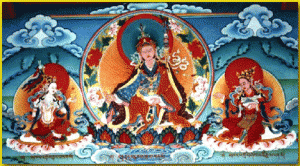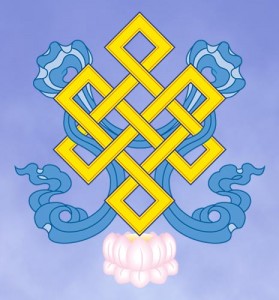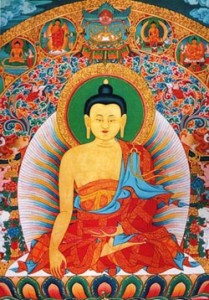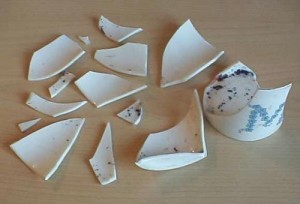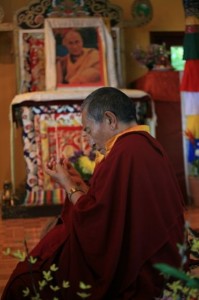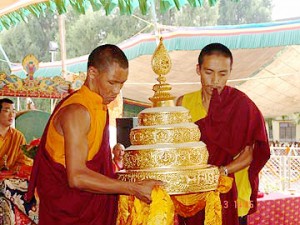An excerpt from a teaching called Compassion, Love, & Wisdom by Jetsunma Ahkon Lhamo
According to the Buddha we continue in cyclic existence and suffer as we do because of desire, and that desire is born of the belief in self-nature as being inherently real. Therefore the cessation of desire, in all its forms, is synonymous with enlightenment. That state of enlightenment is a pure awareness, pure recognition of the natural primordial wisdom state free of all contrivance. That state is both blissful and awake or alive. It is described as having the quality of innate wakefulness, which means when we describe that state as empty of self-nature, we are not describing something that is dead and dark and cold. It has the quality of innate wakefulness. In that state of pure awakening, free of the contrivance of desire, free of the very causes of hatred, greed and ignorance that arise within the mindstream once one has desire, free of these things that are seeds for all future sufferings, we are limitless and free in our capacity to be of benefit to beings. If the Buddha is correct, and I know that he is when he says that all sentient beings are suffering because of desire and hatred, greed and ignorance that are results of desire, then who can help us? Who can be a Guru? Who can benefit us if they themselves are not free of those causes, if they themselves are not free of desire, if they themselves are not free of hatred, greed and ignorance, in the sense that humans experience them? Looked at this way, how can an ordinary sentient being lead us to enlightenment if they themselves have not obtained enlightenment? How can they guide us to be free of the causes of suffering if they themselves are filled with the causes of suffering and will continue to create more and more results that are suffering? So, if it is not possible, and I don’t think it is, for an ordinary sentient being with ordinary means at his disposal to give us what we need, then we need to look to a guide who is free of such things.
When I look at the Buddha and his life I am satisfied that he has achieved that pristine state of pure cognition. I am satisfied that he experiences wisdom. I am satisfied that he reaches the state, or has reached the state, that is wisdom itself. The pure natural uncontrived primordial wisdom state. When he was asked, “What are you? What manner of thing are you?” he said, “I am awake.” It is that state of innate wakefulness, that pure uncontrived realization, which must be considered the goal. Therefore to help us accomplish our goals, to help us accomplish our path, we should only look to one who satisfies those questions and who has those qualities.
The Buddha teaches us that in order to be of benefit to sentient beings it is necessary to experience the pure uncontrived nature of one’s own mind in its natural state without the grasping of desire, without the limitation of the sufferings that are caused by that grasping, without the constant attraction and repulsion that we experience every moment, and without the resultant hatred, greed and ignorance. In order to be of use to sentient beings we must ourselves attain these qualities. He describes wisdom in that way, putting a tremendous emphasis, through meditation and practice, on having a taste of that pure state. That taste so precious, without it we cannot know.
There is no way that I can tell you how to know the awakened state. There is no way I can say to you, and have you really understand it: this is what you must do in order to be of benefit to sentient beings, to bring about the end of suffering, to yourself be free of suffering. Because what I am telling you is only that which can lead to the accumulation of knowledge. I have given you things and you know something, if you are listening, that you didn’t know before. If you use that which you are hearing to practice, and if you practice in such a way that your mind becomes deepened, and you really work at intensive and sincere practice for a great period of time and accomplish just what the teacher tells you to do, and you utilize a path that is pure, that has consistently proven results and brings about the necessary changes that lead ordinary beings, such as ourselves, to experience the natural state, then after some period of time you will have a taste of that nature. That is the wisdom being spoken about; it is not the same as something you learn.
© Jetsunma Ahkön Lhamo
